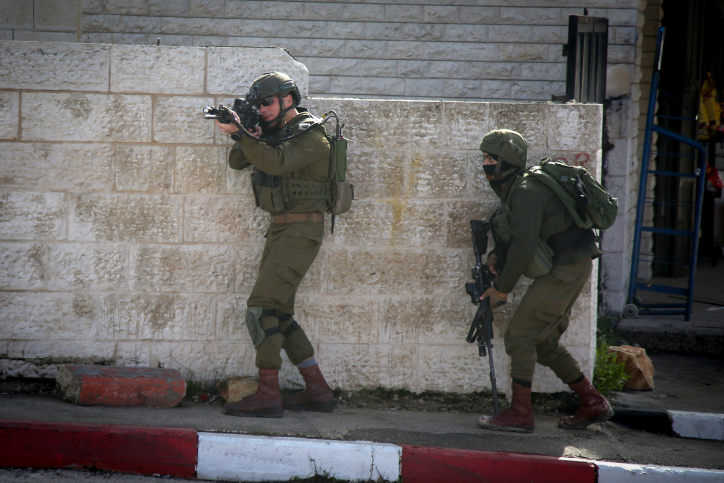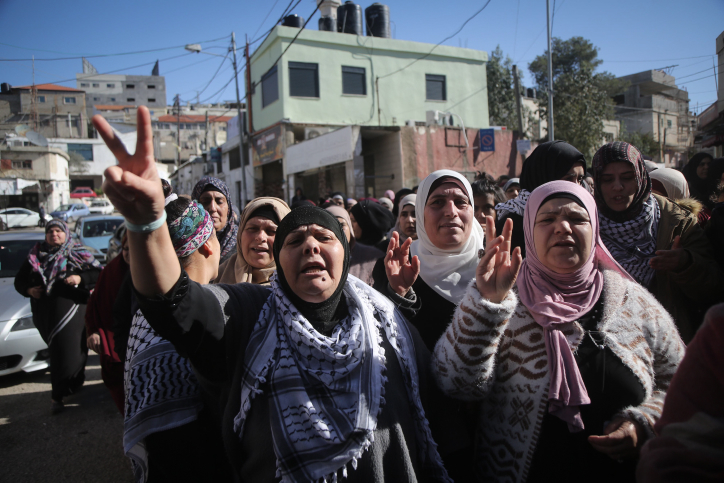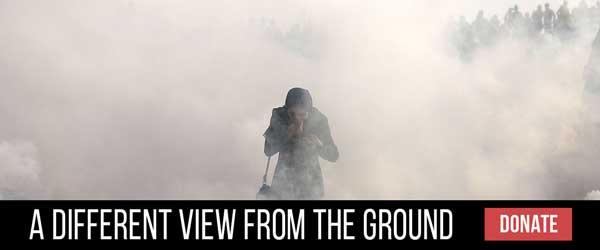As the Israeli army invades Ramallah, fear and anxiety deepen among many Palestinians — but so does solidarity.
By Zena Tahhan

The past few days in the occupied West Bank have been particularly difficult. Violence, killings, and military raids are common here, but Palestinian cities are now facing even deeper uncertainty and instability.
The Israeli army imposed a military closure on the city of Ramallah in the occupied West Bank on Thursday, and closed major checkpoints between cities.
The closure, raids, and restrictions on movement followed two drive-by shootings carried out by Palestinians this week near illegal settlements. Two Israeli soldiers were killed in one of the shootings, and in the other, several Israeli settlers were wounded, including a pregnant woman whose baby was delivered prematurely and later died.
As events began to unfold on Wednesday, the Israeli army raided Ramallah and stationed soldiers at Al-Irsal Street, a main street in the city. Within minutes, Israeli soldiers invaded the area, parading their presence very close to the Palestinian Authority’s Presidential Compound and President Mahmoud Abbas’ residence.
Soldiers killed four Palestinians in separate operations across the West Bank, and over the past several days, dozens of Palestinians have been rounded up in widespread arrest raids. Palestinian youths have been confronting Israeli soldiers at checkpoints and near settlements. Soldiers have been responding with tear gas and bullets, killing at least one teen.
This is the ‘de facto’ capital of Palestine? some Palestinians quipped. A video of an Israeli soldier trying, but failing, to climb a short wall turned into a meme of Abbas offering the soldier a ladder.
“The scene removed the veil from the eyes of many Palestinians — particularly [those] living in the Ramallah bubble — that we are living under the false pretense that there is a state and we have independence,” said Fadi Quran, a Ramallah-based activist. “Israel reminded the Palestinians that this is an illusion, and humiliated the Palestinian Authority,” he added.
Palestinians are used to electricity cuts, night raids, arrests, restrictions on movement and killings, but beneath the veneer of normalcy and jokes reigns an atmosphere of anxiety.
Since the closure was announced, events have been canceled, Palestinians in the West Bank are staying put, checking the news, wondering what the Israeli army is going to do, and whether it will turn into a full military invasion like the days of the first and second intifadas.
For many, the escalation is a reminder that Palestinians’ fates are mostly in the hands of a foreign occupying army.
“I wasn’t able to visit my sick uncle who is currently hospitalized in Nablus,” said Fareed Taamallah, a Ramallah resident and activist. “Many of our family members were stuck in the cities where they work, or at home.”
Those who live and work in different cities across the West Bank or in Jerusalem were held up for long periods, as armed Israeli soldiers painstakingly searched every Palestinian car and checked every identity card.

Amid the uncertainty, however, a strong sense of solidarity has emerged. The people of the West Bank are resisting occupation, land theft, as well as settler and state violence, and people realize that they need to stand together.
Across the West Bank, Palestinians opened their doors to strangers who were stuck on their commutes home. Restaurants offered free meals until checkpoints were reopened on Friday. The hashtag #OurHomesAreOpenforEveryone emerged in Arabic on Facebook and Twitter.
As Israeli soldiers marched through the streets of Ramallah, demanding that businesses hand over CCTV footage, activists sent out a call for business and individuals with security cameras to delete any tapes and break their cameras, in order to protect the identities of Palestinian fighters.
“The biggest impact of the past few days has been the deepening of solidarity and cohesion between the people,” said Quran.
“The people remembered that they are all targets of the occupation. The occupation always tries to divide Palestinians, but suddenly, amid the military closures and crackdowns, the people became stronger as one,” he continued.
People feel like there is nobody to defend them — no one to protect their families, their land, or their dignity. Many Palestinians have lost faith in their leaders, and President Abbas is increasingly unpopular.
“I try to explain to my children that we are a people under occupation, and that the occupation tries to disrupt our lives,” said Taamallah, adding that the uncertainty of the future of his family and of life under military occupation is difficult to manage.
“It is very important that they understand what is happening, but at the same time, not to make them afraid. It’s a very thin line, he continued. “You also have to create a sense of solidarity for resistance within them. Not that they must go to the front lines or throw rocks, but that our presence and resilience are important.”
“Those who carried out the attacks are not people who simply enjoy violence. They did so because they have lost all hope. The occupation does not spare us,” said Taamallah.
“The presence of the occupation is violence in and of itself,” he concluded.
Zena Tahhan is a freelance journalist based in Ramallah.

